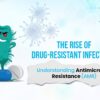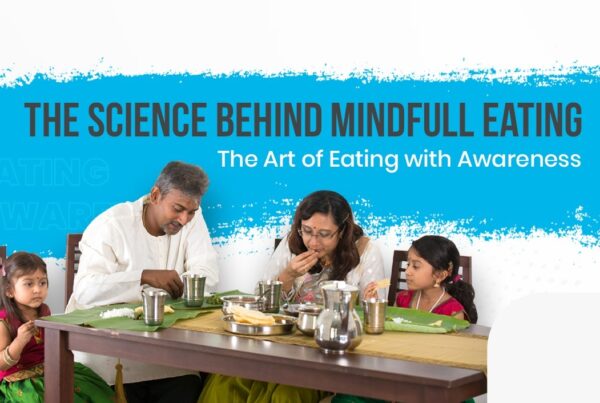We all know smoking is bad for us—it’s linked to heart disease, cancer and lung problems.
But what if something that feels harmless, even sweet, is just as harmful? That’s right: SUGAR
Today’s eating habits have shifted dramatically. Desserts have become an everyday indulgence, sugary drinks are a staple and processed foods like sugary drinks, fast food and packaged snacks fill our plates. After every meal, there’s almost an unspoken rule: always end with something sweet. Our cups of tea and coffee, once simple, now often come with extra sugar to balance out stronger flavors. What we once enjoyed as occasional snacks—like nuts and fruits—has been replaced with pastries, cookies and chips.
The amount of sugar we’re consuming has skyrocketed and the reality is, most of us don’t even realize it.
The Science Behind Sugar Cravings: Why Can’t We Stop Eating It?
Okay, let’s start with something already known: sugar tastes amazing. That sweet rush felt when biting into a sugary treat isn’t a coincidence. When sugar is eaten, the brain releases dopamine, the same “feel-good” chemical triggered by things like sex, winning a game or even drugs. That’s why the immediate pleasure from sweets feels so good.
The problem?
This feeling of pleasure leads to cravings. And the more sugar consumed, the more the brain craves it.
It’s a vicious cycle. Over time, the body gets so used to the dopamine hit that resisting sugary foods becomes harder.
Hormones like insulin and leptin also play key roles in regulating blood sugar and hunger signals. When sugar is consumed in excess, insulin levels rise rapidly and this can create imbalances that fuel further cravings. The body gets caught in a loop where it’s constantly chasing that sweet, dopamine-fueled high.
Isn’t Sugar a Luxury? How Did It Become So Common?
Here’s an interesting thought: Sugar wasn’t always the cheap, go-to ingredient that it is today. In fact, it was once a luxury, something only the wealthy could afford. Fast forward to today and sugar is in nearly everything. It’s hard to find processed food that doesn’t contain added sugar. The result? Most people—especially teenagers—are consuming way more sugar than they should be.
With industrialization, mass production, and the aggressive marketing by the food industry, sugar became more widely available. It quickly became a staple in everyday diets and before long, it was everywhere.
Let’s be clear: a little sugar here and there isn’t a problem. But when it’s in everything eaten and drunk, it becomes a huge issue.
The Real Health Risks of Excessive Sugar Intake
Now let’s talk about why this is such a big deal. Some may think, “It’s fine. Sugar is consumed all the time and everything feels okay.” The thing is, it’s not always about how one feels right now. It’s about what happens in the long run. Excessive sugar intake is directly linked to several serious health problems, including:
- Obesity: Sugar is a major contributor to weight gain. It spikes insulin levels, which promotes fat storage in the body.
- Type 2 Diabetes: Over time, high sugar consumption can lead to insulin resistance, which is a major cause of type 2 diabetes.
- Heart Disease: Research has shown that excessive sugar increases the risk of heart disease by raising blood pressure, promoting inflammation and increasing fat around the heart.
- Fatty Liver Disease: High sugar, particularly fructose, can overload the liver, leading to non-alcoholic fatty liver disease (NAFLD).
- Tooth Decay: Sugar fuels the bacteria in the mouth that cause cavities and gum disease.
The worst part?
Many younger people, especially teenagers are indulging in sugary foods daily without feeling the immediate consequences. What they don’t realize is that these habits are setting them up for serious health problems down the road.
Metabolic Syndrome: Is Sugar to Blame?
Metabolic syndrome is a group of risk factors that increases the chances of developing heart disease, stroke and type 2 diabetes.
Guess what?
Excessive sugar is one of the leading causes of metabolic syndrome. High sugar intake leads to insulin resistance, increases abdominal fat and messes with cholesterol levels—all of which contribute to metabolic syndrome.
So, Should We Treat Sugar Like Cigarettes?
Now, let’s get to the big question: Should sugar really be treated like cigarettes?
Here’s the thing: just like smoking, sugar is addictive. And just like smoking, it can lead to serious long-term health issues. But sugar is so ingrained in diets that it’s hard to imagine life without it. Unlike cigarettes, which have been heavily regulated, sugar is added to almost everything consumed. But that doesn’t mean ignoring the potential dangers.
So, what can be done?
First, start by being more mindful of how much sugar is consumed. It’s important to read labels and be aware of hidden sugars in foods that don’t even taste sweet. Gradually reducing sugar intake can have a huge impact on overall health. And yes, just like quitting smoking, it’s not easy, but it’s worth it.
What’s the Bottom Line?
The bottom line is simple: While a small amount of sugar is fine, excessive sugar is a major contributor to several serious health problems. It’s addictive, it’s everywhere, and it’s doing more harm than realized. The good news is that by being aware and making small changes to diets, sugar intake can be reduced and long-term consequences avoided. It’s time to rethink the relationship with sugar—because, just like cigarettes, too much of it can be a real danger to health.
Call to Action: Ready to Kick the Sugar Habit?
Even though sugar intake is rising, don’t expect much restriction from authorities anytime soon. The sugar and processed food industry is massive and it could take decades before meaningful changes are made to tackle the issue. This means the responsibility is on us to make a change before it’s too late.
If the time has come to cut back on sugar and take charge of health, start small. Make simple changes in the daily diet and watch the positive effects unfold. Share the journey with others and help create awareness about the dangers of excessive sugar.









